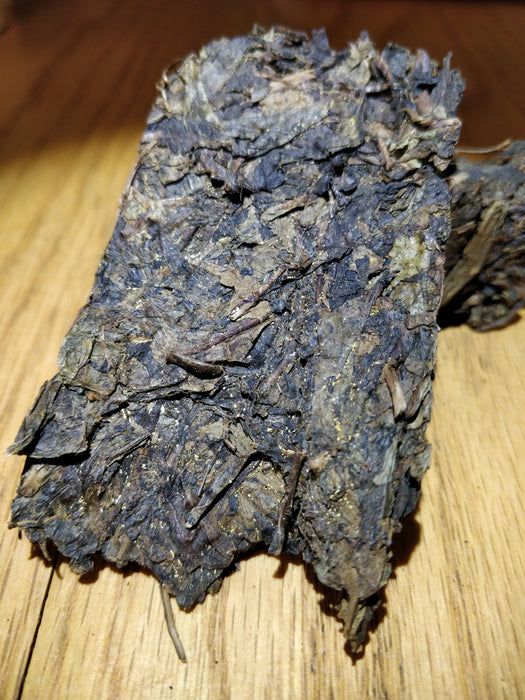2013 Cha Yu Lin "Wu Long Mountain" Fu Brick Tea with Golden Flowers
Cha Yu lin is a small An Hua area tea producer that produces their own Fu Cha, Tian Jian and Qian Liang (and Bai Liang) Cha. They have been producing teas under this brand since 2005. Their attention to care and detail in their productions is admirable and we are proud to be able to offer this incredibly delightful Wu Long Mountain Fu Brick!
This 1000 gram tea brick is composed entirely of spring harvest material Wu Long Mountain (五龙山) from An Hua county area mountainous tea gardens. The tea was fermented, then pressed into bricks where the golden flowers flourish in the inner section of the brick where the conditions are just right to support them. After a few days the Golden Flowers have thrived the bricks are dried gradually using a temperature of 37C which gradually halts the spread of the flowers without damaging them or the tea leaves.
High quality tea leaves, expert processing, and several years of aging come together to make this a very enjoyable Fu Brick!
1000 grams per brick.
2013 harvest and pressing
Growing Altitude: 700-800 meters
Region: Wu Long Mountain of An Hua County (Hunan Prefecture).
ALLERGEN ALERT!!! ** Because there is a possibility the golden flowers were inoculated using wheat flour we cannot guarantee this tea is safe for those with Celiac Disease or those that have severe gluten induced allergies **






